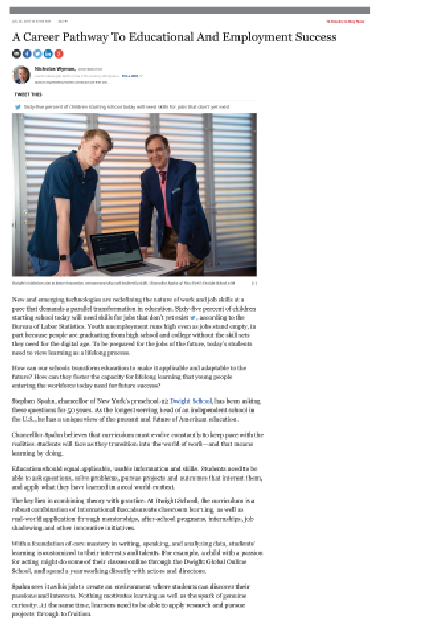Bu Nicholas Wyman.
New and emerging technologies are redefining the nature of work and job skills at a pace that demands a parallel transformation in education. Sixty-five percent of children starting school today will need skills for jobs that don’t yet exist, according to the Bureau of Labor Statistics. Youth unemployment runs high even as jobs stand empty, in part because people are graduating from high school and college without the skill sets they need for the digital age. To be prepared for the jobs of the future, today’s students need to view learning as a lifelong process.

How can our schools transform education to make it applicable and adaptable to the future? How can they foster the capacity for lifelong learning that young people entering the workforce today need for future success?
Stephen Spahn, chancellor of New York’s preschool-12 Dwight School, has been asking these questions for 50 years. As the longest serving head of an independent school in the U.S., he has a unique view of the present and future of American education.
Chancellor Spahn believes that curriculum must evolve constantly to keep pace with the realities students will face as they transition into the world of work—and that means learning by doing.
Education should equal applicable, usable information and skills. Students need to be able to ask questions, solve problems, pursue projects and outcomes that interest them, and apply what they have learned in a real world context.
